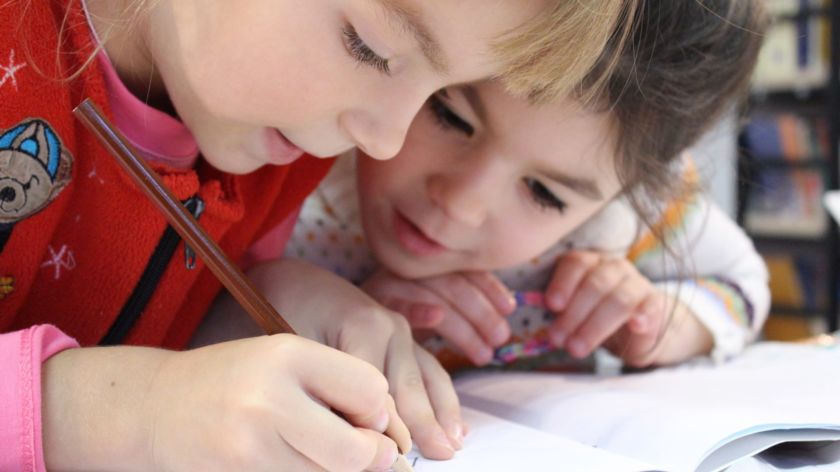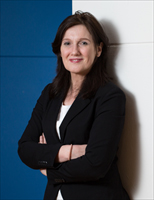-
 Photo: Pxhere
Photo: Pxhere
There are still a lot of misunderstandings about giftedness, says Professor Lianne Hoogeveen. ‘It is wrongly seen as an elite subject.’ In her oration she argues for more attention to individual talent. Also at Radboud University.
‘Is it really possible that a gifted child gets failing grades?’ Remedial educationalist Lianne Hoogeveen still gets that question from time to time when speaking with teachers. For the giftedness expert, it’s an example of how many misunderstandings there still are about pupils with lots of talent. This group comprises of about 2 to 15 percent of all children, dependent on what definition is used. Those misunderstandings must be gone away with, she argued in her oration last week as professor by special appointment of Identification, Support and Counselling of Talent.
Talent
First of all, we have to get rid of the term ‘gifted’, she says in her office in the Maria Montessori building. Not as a scientific term, but as a label for individuals. ‘I find “gifted” an unpleasant term, as if it were given by a higher power. Moreover, it leads to an unnecessary division. Other children are then automatically not gifted or not ‘special’. What matters to me is that there are people with abilities that deviate from the norm. Therefore, I prefer to talk about talent.’
That talent can be expressed in different ways, she emphasises. People often think simply in terms of cognitive abilities, but someone can also be very creative. And some people do encounter problems, while others do not. For example, if that person can express himself in another way, in a hobby, for example. ‘The most important thing is that individual talent is recognised and receives more attention than is currently the case.’
Slipping
What she now regularly hears, Hoogeveen says, is that teachers are reluctant to allow children to skip a grade. That would not be good for their social-emotional development, is often the reasoning. ‘But if there is one intervention that scientific research shows to be beneficial, it is this one.’
As a professor, Hoogeveen wants to help debunk these so-called ‘implicit theories’. Much scientific knowledge does not reach schools and that is a shame, she says. As a result, children are not challenged at the right level, they become bored and even run the risk of dropping out altogether and slipping to a lower level. They can also develop a negative self-image, Hoogeveen says. ‘After all, they see other children around them working hard in class while they themselves don’t. Then you quickly think that there is something wrong with you.’
‘Some teachers don’t think underachieving children are a problem’
‘Some teachers don’t think underachieving children are a problem. They say, if a pupil has gone from A, the highest level, to C in one year: “that’s fine, right? C is average.”’ Unconscious advantages can also get in the way. A low-scoring pupil whose parents have a low socio-economic status is not easily thought to be bored and to actually be capable of more. Especially if there are other things going on, such as ADHD or autism. ‘The parents are also much less likely to raise the alarm. This way, it wrongly remains a bit of an elite subject.’
It is high time that professionals change this, she says. But where to start? Teacher schools play a crucial role, according to Hoogeveen. After all, that is where students should learn how to recognise gifted pupils. This is not done well enough currently, says the professor, which leads new teachers to think: giftedness is probably not important, otherwise it would have been discussed during training. ‘Teacher schools should invest much more in this.’
Setting more demands
Schools can also do something. ‘They can demand of teacher schools that they only want interns who understand children who need more challenge, cognitively or creatively. An applicant for a job interview at, say, the Stedelijk Gymnasium (high school in Nijmegen, ed.) here, will also be interviewed about this.’
Bringing more attention to the subject sounds nice, but teachers are already overburdened by large classes. Where would they find the time? Children ‘at the bottom’ should also be given sufficient attention. Yet it is possible, Hoogeveen thinks. ‘It does not necessarily take more time, it is often a question of priorities. They can take a refresher course at the Radboud Centre for Social Sciences, for example.’
What also can help is simply asking other teachers how a poorly performing or bored pupil behaved in previous years. If they then say: in my class she was super eager to learn, that is a sign that the problem does not lie with her cognitive abilities.
‘The university should do more’
Radboud University should also offer more customisation for gifted students, Hoogeveen thinks. ‘Some of them enter university with the idea “now it’s finally going to happen”, but then still have a study programme that is too easy.’ If they want to do two studies at the same time, however, they often run into problems. For example, for exams that take place at the same time, a flexible solution is not always found. And if you want to do a second bachelor’s or master’s degree after graduating, you suddenly have to pay much higher tuition fees.
Study advisors also have too little expertise in the field of giftedness, she notices. ‘Leiden University has special coaches for these students, and Wageningen University is also working on this. Something like that would also be a good idea in Nijmegen. I hereby make this appeal to the Executive Board.’




